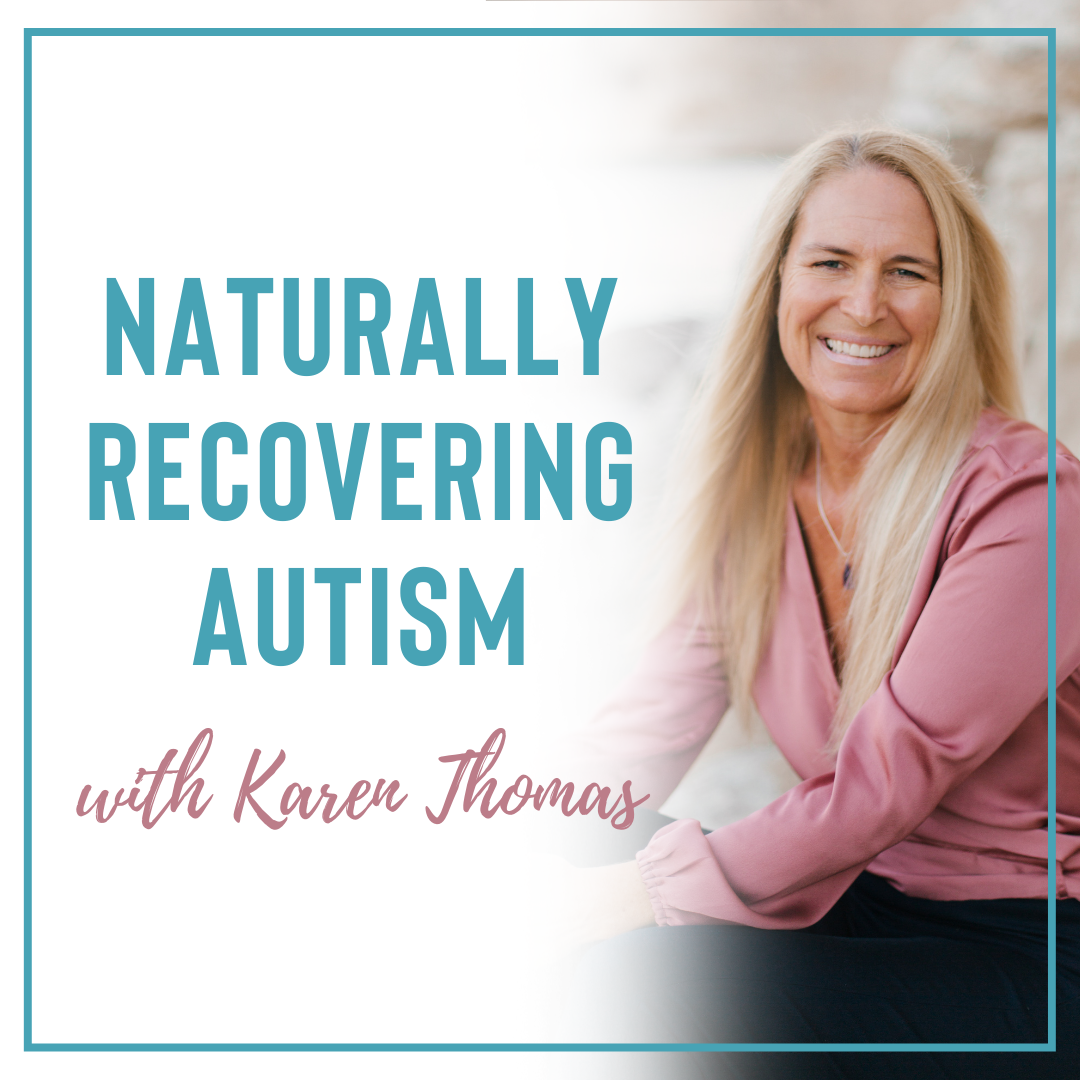

177.1K
Downloads
242
Episodes
Inspiring parents with natural solutions to create the most fulfilling, healthy and productive life possible for their children with autism. Empowering Parents with the Resources to Naturally Recover Autism from a mom who has done it. Having once been told her son could not recover from his symptoms of autism Karen Thomas now shares what she has learned through over a decade of personal research and experience that has brought her own son to recovery. Her background as a Craniosacral Therapist allowed her the awareness that the brain could heal if given the right support. Learn how you can allow your child a clear path for a happier and more fulfilling life with improved communication, better sleep, improved social abilities, and overall improved health. Get your FREE GUIDE to the top 7 foods to eliminate from your child's diet for better sleep, calmer moods, improved focus and speech at, NaturallyRecoveringAutism.com /7foods For more resources go to, NaturallyRecoveringAutism.com
Episodes
![Autism, Toxins and Improving Health and Behavior [Podcast Episode #171]](https://pbcdn1.podbean.com/imglogo/ep-logo/pbblog1796738/Episode_Naturally_Recovering_Autismahvu2_300x300.jpg)
Wednesday Jun 21, 2023
Autism, Toxins and Improving Health and Behavior [Podcast Episode #171]
Wednesday Jun 21, 2023
Wednesday Jun 21, 2023
The All-Important Hypothalamus
The hypothalamus is the part of our brain that tells our nervous system if we should feel calm or fearful. This is commonly known as the fight or flight response. The hypothalmus is often injured in children on the autism spectrum. The hypothalamus has no protective blood-brain barrier, making it easy for toxins to enter this area and cause damage. A few known environmental toxins are mercury, aluminum, and bisphenol A (BPA), a chemical found in plastics such as drinking bottles, baby bottles, toys, dental sealants and the linings of food cans. Mold biotoxins are also a top offender.
The hypothalamus holds within it the areas responsible for aggression, territorial defense, and sexual pursuit. It also controls sleep and appetite cycles along with the limbic system (another part of the brain). Estrogen receptors in the hypothalamus effect food intake, energy, and the distribution of body fat.
Two Neurochemicals You Should Know
The hypothalamus is part of both the endocrine system and the nervous system and is responsible for messages between the two. The hypothalamus releases many neurochemicals including:
- Dopamine: a neurotransmitter affecting reward-based motivation, decision-making, ADHD, Parkinson’s disease, restless leg syndrome, lack of focus and motor control. It also affects a part of the brain called the pre-frontal cortex. The pre-frontal cortex controls executive functioning such as the ability to see consequences for our actions and organizational planning. It is a big issue for people on the autism spectrum.
- Oxytocin: released via the pituitary as a part of hypothalamic functioning. Oxytocin is the hormone involved with the ability to bond with others, especially the mother after birth.
How Can We Help the Hypothalamus?
What can we do to assist the hypothalamus?
Zinc, vitamin D3, proper iodine levels and exercise are crucial to the proper functioning of the hypothalamus.
Scientists have found that gut bacteria produce neurotransmitters such as serotonin, and dopamine. Up tp 95% of serotonin is made in the gut. The gut must be healthy for adequate amounts to be produced and transfer properly to the brain.
There is an excellent product called Stress Reducer Elixir that may increase oxytocin and serotonin levels naturally . This comes as tasteless sublingual drops.
Your Unborn Child’s Exposure To Toxins
It goes without saying that you should do your best to avoid toxins around your children and during pregnancy. When a mother is exposed to environmental toxins during pregnancy the fetus is directly affected. The liver is our main organ of detoxification. When it is congested and not working properly, then bile and toxins are frequently pushed back into the stomach. The cells become injured and weak and are then more susceptible to damage from pathogenic microbes such as candida, parasites, H. Pylori, and more.
These pathogenic bacteria then cause inflammation in the gut which weakens the lining and even breaks holes through it. This is known as leaky gut. Leaky gut allows for undigested foods and other toxins to leak into the bloodstream causing inflammation throughout the body and brain. The behaviors we see are due to many factors but they all include inflammation and its effect on the central nervous system and the brain in particular...
Click Here or Click the link below for more details!
No comments yet. Be the first to say something!